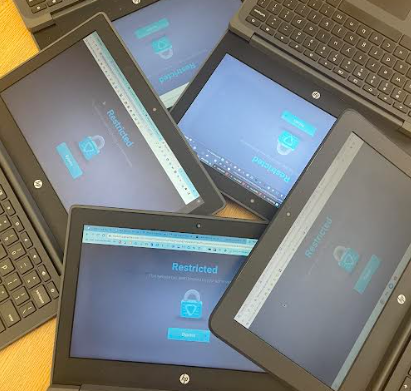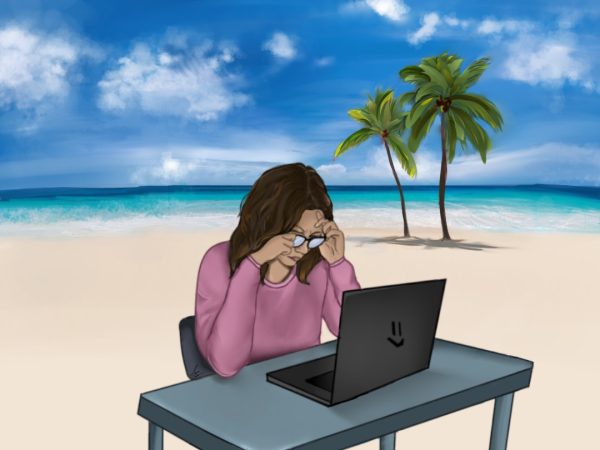OPINION: Unfair restrictions on chromebooks weaken students’ work

Staff Photo by Rachel Levine
As students try to complete their work, restricted websites get in the way.
With projects being assigned and essays being turned in, the internet serves as a valuable source to access necessary information. When some educational tools are blocked from students’ reach, it hinders the process of completing their projects.
Student Chromebooks at West Essex contain many filters that understandably block games and distractions from class, but those restrictions also limit and delay access to necessary websites that contain information used for educational purposes.
Considering the many research projects students use their computers for throughout the year, it is necessary to be able to access websites that contain the needed information.
“I disagree with the school’s policy of blocking websites,” sophomore Asha Rastogi said. “If I want to access certain things that the school thinks isn’t appropriate, I can’t get onto it.”
Assistant principal Kimberly Westervelt explained how websites are blocked based on their educational quality.
“Ultimately, Chromebooks are an educational tool provided by the district to assist students with their academics,” Westervelt said. “If a website does not seem to serve an educational purpose, we block it to decrease the students’ chances of being distracted.”
While online games can be a distraction for students during class time, it does not excuse the fact that many students are unable to access sources they need for school, such as citation creator Easybib, news and politics magazine Slate.com and even traditionally sanctioned sites like nytimes.com that merely mention the phrase “TikTok.” These could all be useful tools for students, especially during projects that require research and citing.
It is understandable that certain websites need to be blocked from students. However, one fact many students are unaware of is that teachers can make a direct request for desired website resources to be “unblocked” and to pass through the school’s web filter. Mike Johnson, network administrator for the district, discussed how students are able to request websites to be unblocked by submitting a request to IT, even though the department should already be mindful of these issues.
“The teacher can submit a ticket through our ticketing system, which is as easy as sending an email,” Johnson said. “Once we see it, it usually takes less than an hour to review the site, determine whether we can safely allow it and remain in compliance with all our obligations, and then act.”
Though students do have a workaround solution to potentially get key websites they need unblocked, delayed access to this information is frustrating at best or, if the desired information is needed immediately, potentially fatal to any chance of completing that assignment due at 11:59 p.m. that night.
The process needs to be simplified and, honestly, the school should provide students with broader access to online information as a whole.





